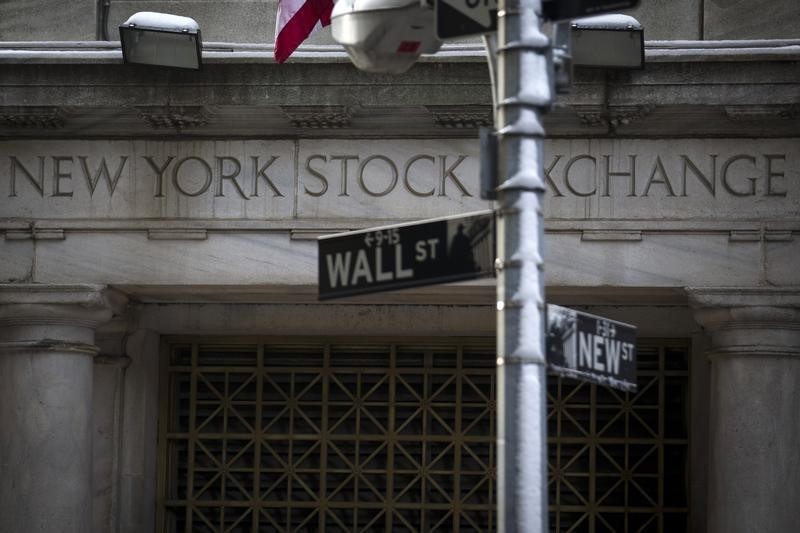By Geoffrey Smith
Investing.com -- U.S. stock markets opened flat to lower on Thursday as the renewed rise in long-term bond yields again undermined the valuations of technology stocks in particular, while helping bank stocks to new highs for the year.
By 9:40 AM ET (1440 GMT), the Nasdaq Composite was 9 points, or 0.1% lower, with chipmaker NVidia losing 2.1% after a slightly disappointing quarterly update after the closing bell on Wednesday. Tesla (NASDAQ:TSLA) stock lost 1.2% and Nio (NYSE:NIO) ADRs lost 1.6% as money continued to be redeployed within the electric vehicle sector in the wake of Lucid Motors' merger with the Churchill Capital IV SPAC.
The S&P 500 was also down 0.1% but the Dow Jones Industrial Average was down only 10 points off the all-time high that it closed at on Wednesday.
The moves came after what appeared to be an improvement in the labor market sector, as it reacted to the first lifting of lockdown measures in months. Initial jobless claims fell to 730,000 last week, a much sharper decline than expected.
Standing out in early trading was the continuation of Wednesday's renewed short squeeze in GameStop (NYSE:GME) stock and AMC Entertainment (NYSE:AMC) stock, which rose 30% and 6.4% respectively as options dealers rushed to cover short call positions in an increasingly tight cash market. Moderna (NASDAQ:MRNA) stock also rose 6.9% after the biotech company said it expects sales of $18.4 billion from its Covid-19 vaccine this year, an upgrade of some 20% from its previous estimate.
Rising bond yields and a steeper yield curve continued to support financial stocks. Bank of America (NYSE:BAC) stock rose 1.2% while Morgan Stanley (NYSE:MS) stock rose 0.8%. Assurances by Federal Reserve Chairman Jerome Powell that monetary policy will stay loose for the foreseeable future also kept financial marketplace stocks well bid, with Tradeweb (NASDAQ:TW) stock rising 1.3% to a new all-time high, while Interactive Brokers (NASDAQ:IBKR) rose 0.9% to a three-year high. Deutsche Bank analysts argued in a note to clients this week that the forthcoming wave of household stimulus checks alone could release over $100 billion for retail investors to deploy in financial markets.
Among the losers were Booking (NASDAQ:BKNG) stock, which fell 6.4% after warnings of a challenging first quarter took the froth of a rally that had seen it gain over 35% since Pfizer (NYSE:PFE) and BioNTech made their breakthrough vaccine announcement in November. Domino’s Pizza (NYSE:DPZ) stock also fell 6.1% after missing forecasts for its sales in the final quarter of the year.
